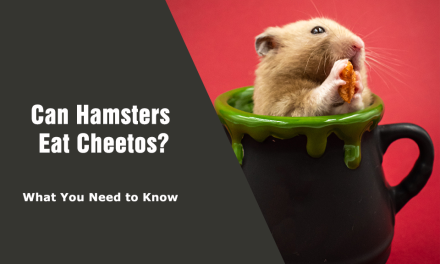Dogs are known for their love of food, and many pet owners wonder what human foods their furry friends can safely consume. One popular snack that dog owners may be curious about is honey buns. While it may be tempting to share a sweet treat with your pup, it’s important to consider whether it’s safe for them to eat.
So, can dogs eat honey buns? The answer is no. Honey buns are not a safe food for dogs to consume. They are high in sugar, fat, and calories, which can lead to obesity and other health problems in dogs. Additionally, honey buns often contain ingredients that are harmful to dogs, such as chocolate or raisins.
As responsible pet owners, it’s important to be mindful of what we feed our dogs. While it may be tempting to share our favorite snacks with them, it’s crucial to remember that not all human foods are safe for dogs to eat. In the case of honey buns, it’s best to avoid sharing this treat with your furry friend and opt for dog-friendly snacks instead.
Can Dogs Eat Honey Buns?
Understanding Honey Buns
Honey buns are a popular pastry that is sweet and sticky. They are made with flour, sugar, honey, and other ingredients. While they may be a tasty treat for humans, it is important to consider whether they are safe for dogs to eat.
Dogs have different nutritional needs than humans, and some foods that are safe for us can be harmful to them. Before giving your dog any human food, it is important to do your research and consult with a veterinarian.
The Impact of Sugar on Dogs

One of the main ingredients in honey buns is sugar. While small amounts of sugar may not be harmful to dogs, excessive amounts can lead to health problems such as obesity, dental issues, and diabetes.
In addition to the sugar content, honey buns also contain other ingredients that may not be suitable for dogs. For example, they may contain artificial flavors, preservatives, and other additives that can be harmful to your furry friend.
It is important to note that dogs should not be given honey buns or any other human food as a regular part of their diet. Instead, they should be fed a balanced diet that meets their nutritional needs.
Overall, while honey buns may be a tasty treat for humans, they are not recommended for dogs. If you want to give your furry friend a special treat, consider giving them a dog-friendly snack that is specially formulated for their nutritional needs.
The Risks of Feeding Honey Buns to Dogs
When it comes to feeding our furry friends, we always want to make sure we are giving them the best possible food. However, some human foods are not suitable for dogs, and honey buns are one of them. While they may seem like a sweet treat that your dog would love, there are several risks associated with feeding honey buns to dogs.
Potential Allergic Reactions
One of the biggest risks of feeding honey buns to dogs is the potential for allergic reactions. Honey buns contain several ingredients that dogs may be allergic to, such as wheat, soy, and dairy. These ingredients can cause symptoms such as itching, swelling, and digestive upset. In severe cases, allergic reactions can lead to anaphylaxis, which is a life-threatening condition.
Obesity and Other Health Issues
Another risk of feeding honey buns to dogs is the potential for obesity and other health issues. Honey buns are high in sugar and fat, which can lead to weight gain and other health problems such as diabetes and heart disease. Additionally, the high sugar content can lead to dental problems such as tooth decay and gum disease.
In conclusion, while honey buns may seem like a delicious treat for your furry friend, they are not a suitable food for dogs. The risks of allergic reactions, obesity, and other health issues are too great to ignore. It is always best to stick to dog-specific treats and foods to ensure your dog’s health and well-being.
Safe Alternatives to Honey Buns for Dogs
If you’re looking for a sweet treat to give your dog, honey buns might not be the best option. While honey itself is safe for dogs in moderation, honey buns often contain high amounts of sugar, artificial ingredients, and preservatives that can be harmful to your furry friend’s health. Instead, consider these safe alternatives:
Natural Treats
- Fresh fruits: Many dogs enjoy sweet fruits like apples, bananas, and strawberries. These treats are not only tasty but also provide vitamins, fiber, and antioxidants that can benefit your dog’s health. Just make sure to remove any seeds, stems, or pits that could be choking hazards or toxic to dogs.
- Vegetables: Dogs can also benefit from crunchy veggies like carrots, green beans, and sweet potatoes. These treats are low in calories and high in fiber, making them a great option for dogs who need to watch their weight. You can serve them raw, cooked, or frozen for a refreshing snack.
- Homemade treats: If you have some spare time, you can make your own dog treats using simple ingredients like peanut butter, oats, and honey. There are many recipes available online, and you can customize them to your dog’s taste and dietary needs.
Commercial Dog Treats
- Natural Treats: Many pet stores offer a wide variety of natural dog treats made from high-quality ingredients like meat, fish, and vegetables. These treats are often free from artificial preservatives, colors, and flavors, making them a healthier option for your dog.
- Dental Treats: Dental treats are designed to promote good oral hygiene by reducing plaque and tartar buildup. They come in different shapes and sizes, and some even have added ingredients like parsley or peppermint to freshen your dog’s breath.
- Training Treats: If you’re using treats to train your dog, look for small, low-calorie options that won’t fill them up too quickly. Training treats should be easy to break into small pieces and have a strong scent that will get your dog’s attention.
Remember, treats should only make up a small part of your dog’s diet, and you should always check with your vet before introducing any new foods. With these safe alternatives, you can spoil your dog without compromising their health.
When to Consult a Vet
If your dog accidentally eats a small piece of honey bun, there is no need to panic. However, if your dog eats a large amount of honey bun or shows any signs of discomfort, it’s best to consult a vet immediately.
Here are some signs that indicate your dog may need medical attention:
- Vomiting or diarrhea
- Loss of appetite
- Lethargy or weakness
- Abdominal pain or discomfort
- Excessive thirst or urination
- Difficulty breathing or wheezing
- Swelling or hives
If your dog has a known allergy to any of the ingredients in honey buns, it’s important to seek medical attention right away. Allergic reactions can be life-threatening and require immediate treatment.
Additionally, if your dog has a history of pancreatitis or other digestive issues, it’s best to avoid giving them any sugary or fatty foods like honey buns. These types of foods can exacerbate existing health conditions and cause further complications.
In general, it’s always better to err on the side of caution when it comes to your dog’s health. If you’re unsure whether your dog needs medical attention, it’s best to consult with a veterinarian. They can provide guidance on how to proceed and ensure your dog receives the care they need.
Conclusion
After researching and analyzing the nutritional content and potential health risks of honey buns for dogs, we can confidently say that they are not a recommended treat for our furry friends.
Honey buns are high in sugar, calories, and unhealthy fats, which can lead to obesity, diabetes, and other health problems in dogs. Additionally, they may contain artificial preservatives, flavors, and colors that can cause digestive issues and allergic reactions.
While dogs may enjoy the sweet and tasty flavor of honey buns, it’s important to prioritize their health and well-being by choosing healthier and safer treats. There are many dog-friendly alternatives to honey buns, such as fresh fruits, vegetables, and lean proteins, that can provide essential nutrients and satisfy their cravings.
In summary, we advise dog owners to avoid feeding their pets honey buns and to consult with a veterinarian or canine nutritionist for guidance on a balanced and nutritious diet. By making informed and responsible choices, we can ensure that our beloved dogs live long, happy, and healthy lives.
Frequently Asked Questions
Can dogs eat cinnamon in honey buns?
Cinnamon is not toxic to dogs, but it can cause irritation to their mouths and digestive system. If your dog consumes a small amount of cinnamon in a honey bun, they may experience some discomfort, but it is unlikely to cause serious harm. However, if your dog consumes a large amount of cinnamon, it can lead to vomiting, diarrhea, and even liver damage.
Is it safe for dogs to eat honey buns?
While honey buns are not toxic to dogs, they are not a healthy choice for them. Honey buns are high in sugar and fat, which can lead to obesity, diabetes, and other health problems in dogs. In addition, the ingredients in honey buns, such as wheat flour and corn syrup, can cause digestive issues in dogs.
What are the risks of feeding honey buns to dogs?
Feeding honey buns to dogs can lead to a variety of health problems, including obesity, diabetes, and digestive issues. The high sugar and fat content in honey buns can cause weight gain and other health problems in dogs. In addition, the ingredients in honey buns, such as wheat flour and corn syrup, can cause digestive issues, such as diarrhea and vomiting.
What kind of bread is safe for dogs to eat?
Plain bread, such as white or wheat bread, is safe for dogs to eat in moderation. However, bread that contains ingredients like raisins, garlic, or onion can be toxic to dogs and should be avoided. It is also important to avoid bread that is high in sugar or fat, as these can lead to health problems in dogs.
Can dogs eat buns in general?
Buns are not toxic to dogs, but they are not a healthy choice for them. Buns are often high in sugar and fat, which can lead to obesity, diabetes, and other health problems in dogs. In addition, the ingredients in buns, such as wheat flour and corn syrup, can cause digestive issues in dogs.
Are honey buns a healthy choice for dogs?
No, honey buns are not a healthy choice for dogs. Honey buns are high in sugar and fat, which can lead to obesity, diabetes, and other health problems in dogs. In addition, the ingredients in honey buns, such as wheat flour and corn syrup, can cause digestive issues in dogs. It is best to avoid feeding honey buns to your dog and choose healthier treats instead.





